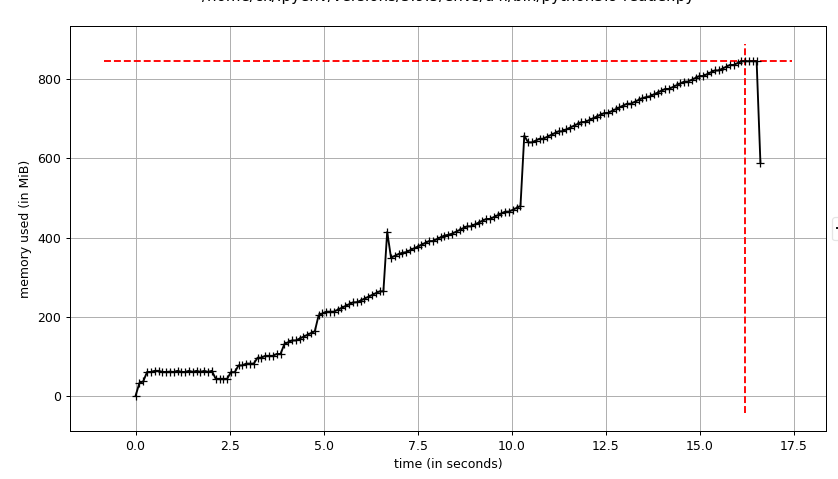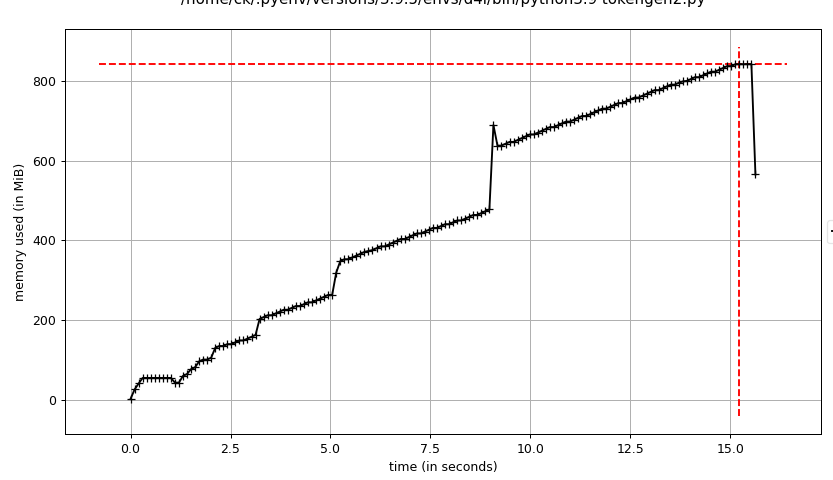Solution I produced for the D4L 10 Million token challenge. A bit of an unorthodox solution was needed to fulfill the requirements. For more details take a look at the DOCUMENTATION.md file. Ideas from this solution should probably kept away from production use.
Create 10 million tokens of the form /[a-z]{7}/, save them as a list and pump them as fast as possible into a relational database. Also produce a frequency table of duplicate tokens. Also, the tokens in the db should be unique.
- Should be fast and efficient in terms of resource usage (time, memory, network, cpu)
10 million tokens produced, saved, dumped and frequency-table'd in about 16.42 seconds @ 850 MiB of memory use on a 2019 Vivobook S15 (running Win10 (running Ubuntu@WSL2 (running Docker))). Profiled with mprof. See screenshot of profiling results (the large jumps are the Python memory manager kicking in):
- Memory use could be pushed further down by creating a custom hashing function that exploits the fact that the tokens are essentially their own hashes and instead of saving the hash, one could save the index position of the string into the hash buckets. That way we don't have to keep track of the larger strings. Could be a dead end though.
- Created tokengen_but_even_faster.py. Turns out that with the approach in there you can push the token generation into the sub-second range.
- click and run docker environment
- integration test
- Makefile w/ profiler
- How to run / execute. Refer to DOCUMENTATION.md for the time being

